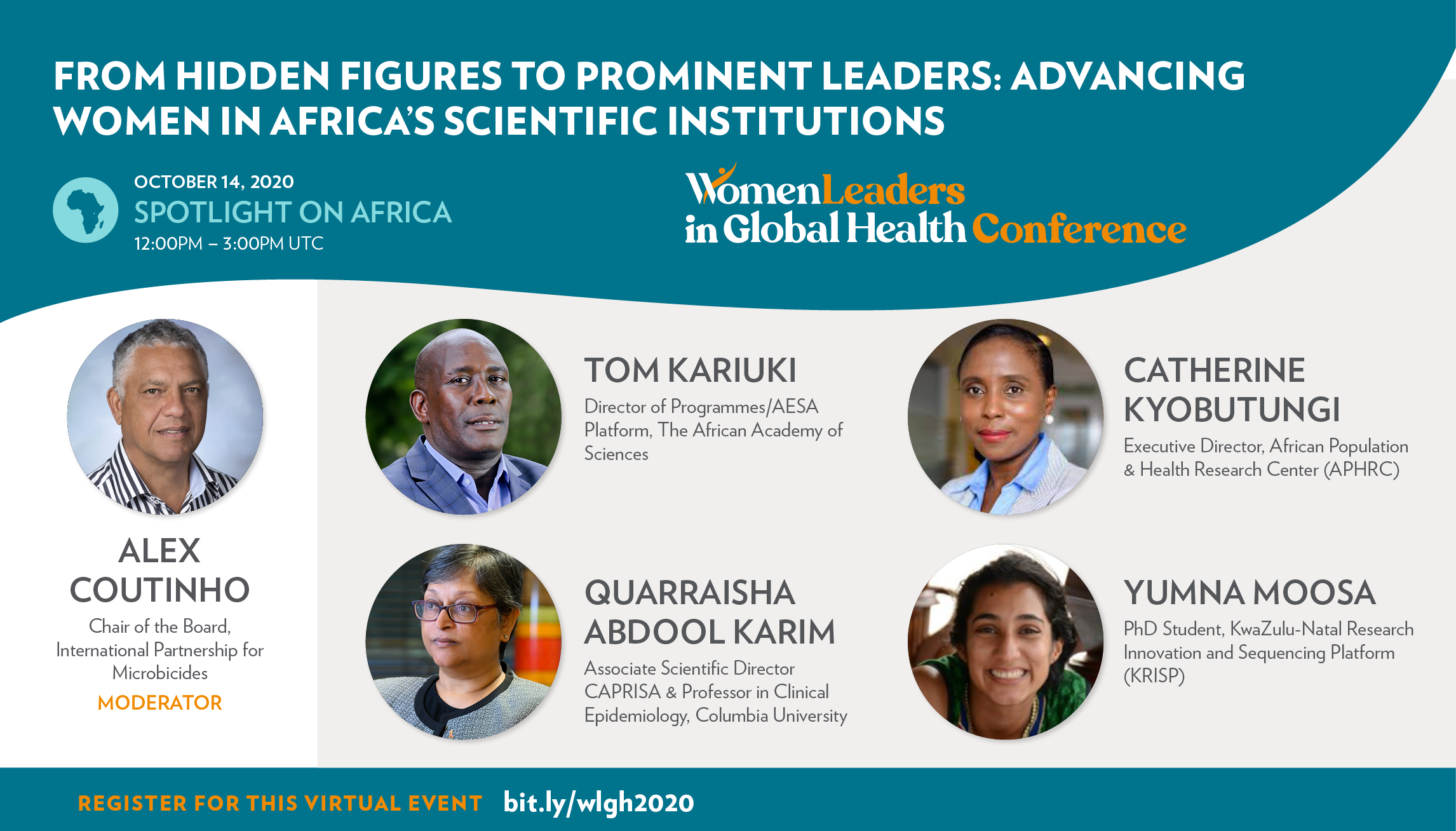Women scientists are critical to shaping and executing Africa’s health and development agendas but remain significantly underrepresented when it comes to careers in science, technology, engineering, and mathematics (STEM). According to a recent report by the African Academy of Sciences, women only comprise 28% of science researchers in Africa, which is consistent with the global figure. Some of the key barriers identified by the report include family responsibilities, patriarchal attitudes, unconducive work environments and pay equity.
The Women Leaders in Global Health Conference 2020 convened a dynamic panel of experts to unpack the barriers that women face to entering, staying and elevating within African Scientific institutions, and to chart a path toward greater representation. Panelists included Quarraisha Abdool Karim, Associate Scientific Director CAPRISA & Professor in Clinical Epidemiology, Columbia University; Tom Kariuki, Director of Programmes/AESA Platform, The African Academy of Sciences; Catherine Kyobutungi, Executive Director, African Population & Health Research Center (APHRC); and Yumna Moosa, PhD Student, KwaZulu-Natal Research Innovation and Sequencing Platform (KRISP) The panel was moderated by Alex Coutinho, Chair of the Board, International Partnership for Microbicides.
The panel offered numerous helpful insights and perspectives. Here are three that stood out:
- Create Opportunities for Recognition and Leadership in all Corners of the World. Opportunities should not just apply to one or two recipients in a handful of countries, but to women in all corners of the world, especially in Low- and Middle-Income Countries. Quarraisha Abdool Karim reflected on this: “It creates role models. When women can see other women in leadership positions, it gives them more strength, courage and inspiration to follow those paths.”
- Foster Inclusive Hiring Processes and Workplaces. Tom Kariuki argued that efforts must go beyond gender parity mandates to tackle broader challenges around the treatment of women in the recruitment process and post-hiring. Key areas of intervention include a zero-tolerance policy for bullying and harassment, pay equity, equitable parental leave policies as well as a heightened awareness of gender bias during the peer review process, among others.
- View Women as Problem Solvers – Not the Problem. Women must be included in designing solutions to the issues that impact them and the broader community. According to Yumna Moosa, “We have to support the vulnerable, the young, the old, the poor, and women to be part of solving the problems that we all face, rather than treating us like the problems that need to be solved.”
Watch the full video here.


